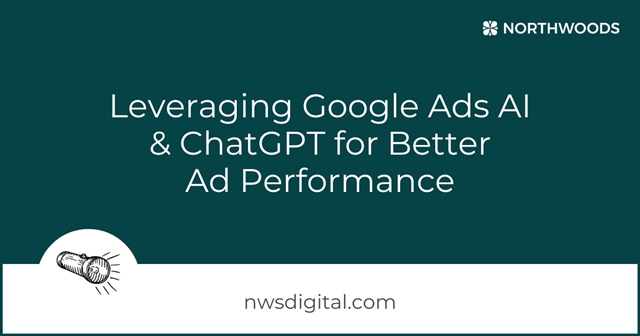By Edward Kozlowski
August 5, 2024
4 Minute Read
The digital advertising landscape continues to undergo rapid transformation, influenced heavily by advancements in AI, changes in user privacy like the deprecation of third-party cookies (though Google announced July 22 that it’s pausing deprecation plans for its Google Chrome browser), and continuous updates to platforms such as Google Ads.
These shifts not only affect the way ads are created and managed but also how they perform across various digital platforms. Here’s what marketers and advertisers need to know right now to make informed decisions about their digital advertising.
AI Advancements and Their Impact on Digital Advertising
Artificial Intelligence (AI) has been changing digital advertising for longer than you may think, fundamentally transforming the management of digital advertisements. Bid strategies and targeting capabilities have been using AI well before it became the popular trend it is today.
Previously, advertisers had to manually adjust bids and target specific keywords, a process that was both time-consuming and prone to human error. AI's impact allows advertisers to focus on the bigger picture.
As automated bid strategies have gotten smarter, they’ve allowed marketers to use broad match keywords more effectively to reach more people and bid more effectively. A learning curve is usually involved, so it’s important to conduct enough testing to make sure broad match works for you.
Challenges with AI in Digital Ad Creation
Artificial intelligence has considerably enhanced the efficiency of digital advertising through automation, yet it introduces some challenges, particularly in the realm of creative content development.
The generation of automated ad content doesn’t entirely replace the nuances a human may understand and the creativity a human provides. That human touch is essential to scrutinize and fine-tune AI-generated content, ensuring that it aligns with brand voice, meets quality standards, and resonates with the intended audience.
This human oversight helps in maintaining the relevance and impact of ads, preventing the common pitfalls of generic or off-target content that can occur with solely automated systems. So, while AI can streamline processes and offer initial content drafts, the role of creative professionals remains crucial in crafting compelling and effective digital advertising campaigns and associated imagery.
Preparing for a Cookieless Future
The move toward the elimination of third-party cookies represents a major hurdle for digital marketers, particularly impacting the efficacy of remarketing strategies. On July 22, 2024, Google announced it was pausing its plans to deprecate third-party cookies in its Chrome browser. But that doesn't mean that marketers shouldn't still prepare for a cookieless future.
As traditional tracking methods become obsolete, advertisers will need to seek alternative approaches. Key among these alternatives is the enhancement of first-party data collection methods, which involves directly gathering consumer information through interactions on their own platforms.
Additionally, it’s important to refine audience targeting techniques to ensure that marketing efforts are as tailored and effective as possible. Consider targeting people using Google Ads’ In-market and Affinity segments to leverage interest-based targeting.
To successfully navigate this transition, advertisers will need to not only adopt new tools but also innovate their strategies to maintain and possibly enhance the precision and effectiveness of their digital advertising campaigns in a post-cookie era.
Choosing the Right Digital Ad Platform
Google Ads continues to stand out as a premier platform within the digital advertising space, owing to its comprehensive reach and advanced targeting capabilities. The platform's robustness allows marketers to effectively reach a broader and more diverse audience base.
However, the decision to select the right ad platform should be tailored based on specific campaign objectives, target audience characteristics, and the unique needs of the business.
The Importance of Regular Digital Ads Audits
Conducting regular audits of your digital advertising accounts and campaigns is essential for maintaining the effectiveness and efficiency of digital advertising efforts. These comprehensive reviews are pivotal in uncovering any inconsistencies or gaps in bid strategies, keyword performance, and the alignment of campaigns with overarching business objectives.
Through digital ads audits, businesses can assess whether their ad spend is yielding the desired results and ensure that each campaign is optimized for maximum impact. Audits also provide valuable insights into how well the ads are resonating with the target audience and whether the chosen strategies are driving the intended business outcomes.
By regularly evaluating these elements, companies and the ad partners they work with can make informed decisions to adjust their digital marketing strategies, thereby enhancing the ROI of their advertising efforts and ensuring continuous improvement in their market approach.
Final Thoughts
The digital advertising space is more dynamic than ever, driven by technological advancements and changing regulations. Staying informed and adaptable is crucial for marketers looking to navigate this complex landscape effectively.
A strong focus on strategic planning, ongoing learning, and the integration of AI with a human touch will equip advertisers to achieve sustained success in their digital advertising efforts.
Subscribe to our blog to get expert insights and tips into the latest news and happenings in digital marketing and advertising, and find out how we can help you achieve your digital goals.
Related Blog Posts

A cookieless future is likely still coming. Here are strategies to get your hand out of the cookie jar and make a successful transition to a profitable future!

Leveraging Google Ads AI features in combination with ChatGPT can significantly enhance digital ad performance. Here's what you need to know.

Ensure your next Google Ads campaign is a success! Follow our checklist for a well-organized, best-practice approach.